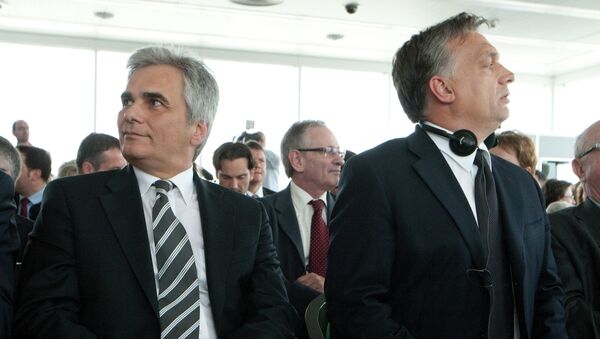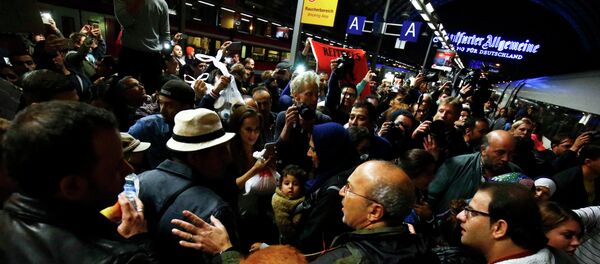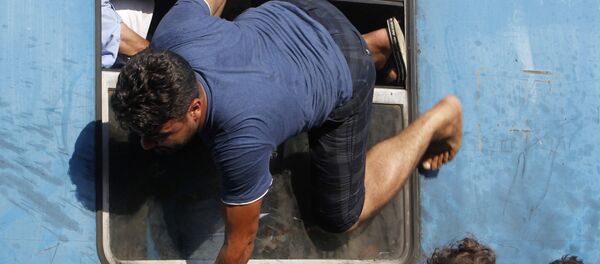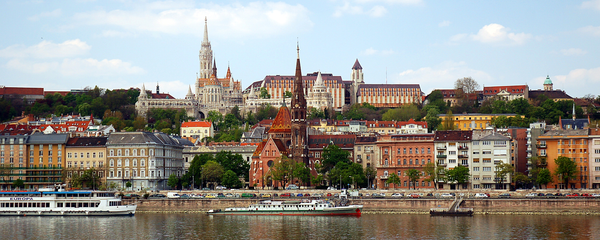Faymann criticized Hungarian Prime Minister Orban, saying that "Orban told me and [German Chancellor] Merkel that he guaranteed that there would be no more than 4,000 [refugees], something which I did not believe from the beginning." It is now believed that at least 6,500 refugees have already crossed the border between Hungary and Austria.
Asked to respond to what his interviewer called the Hungarians' 'scandalous' behavior, Faymann noted that "a picture is worth a thousand words: one cannot solve the refugee problem with barbed wire." He added that "those who do not assist in resolving the refugee issue will have to reckon with the financial consequences in the future. Solidarity is not a one-way street."
Faymann emphasized that Europe as a whole needs to solve the refugee crisis, which he said was "the biggest crisis and thus the greatest challenge to Europe in its history." The politician noted that Europe's politicians would have to work together to create equitable quotas, to secure the EU's external borders and to set up emergency aid provision for the refugees.
Hungarian Response
The Austrian chancellor's commentary provoked a speedy response from Budapest: Hungarian news agency MTI quoted Levente Magyar, Secretary of State of Hungary's Foreign Ministry, as saying that Faymann was "blowing hot air, out of [his government's] inability to act on the immigration crisis." Magyar added that while the chancellor had taken it upon himself to step out as the 'defender of refugees', Austria was simultaneously putting pressure on other countries in order to prevent the influx of migrants to Austria. The official concluded that the chancellor's remarks were the latest in a series of speeches presenting Hungary in a bad light which, he stressed, does not serve the interests of maintaining good-neighborly relations between the two countries.
Magyar's remarks echo those of Hungarian Foreign Minister Peter Szijjarto, who stressed Saturday that the refugee crisis was caused by a "failure of the EU's immigration policy" and "the result of a series of irresponsible statements by European politicians."
Hungarian authorities made the decision to let thousands of refugees board buses and head for Austria and Germany on foot after nearly a week of unrest outside Budapest's central rail terminal, as well as several incidents of refugees breaking out from the camps which authorities had directed them to.
Last week, Hungary completed the first stage of its 177 km-long fence with Serbia, ostensibly aimed at deterring illegal border crossings. With Budapest estimating that over 156,000 migrants have entered the country since the beginning of the year, Prime Minister Orban has warned that Hungary might also build a barrier along its border with Croatia, if undocumented immigrants begin arriving from that direction.





